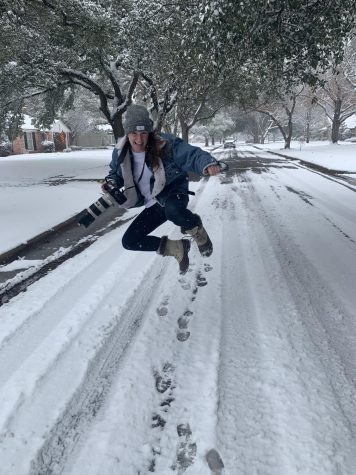With recent global efforts to support those victimized by sexual harassment and/or assault, the #metoo campaign has given victims the motivation to tell their story. The latest Golden Globes awards saw a sea of black attire amongst those who attended the show to represent the epidemic of sexual harassment in the entertainment industry and beyond.
As the #metoo campaign took flight in October of 2017, so did the reporting of such cases on campus. In the fall semester of 2017, ten students made a report of having experienced some form of sexual harassment and/or assault. This is an increase from 1 reported sexual assault case in the year of 2016.
“It’s important that young women are putting their foot down against injustice,” Angela Dees, kinesiology senior, said. “Sexual assault is a crime that unfortunately has many silent victims. For every man or woman who comes forward, more light is shown on a serious issue that is far too often pushed aside in the shadows.”
Blaine Anderson, kinesiology junior, was unaware of the increase, however he thinks “it is good for people to come forward and tell about instances where they were actually assaulted. If the problem is never brought forward, then it is never addressed.”
According to Morgan Sinclair, sociology junior, both sides of the coin should be considered the rise in reported cases with situations that are so “concerning.”
“I hope enough is being done to help the victims in these cases, which should always be a top priority,” Sinclair said. “I am glad that students are feeling safe enough to be able to report sexual assault and harassment cases.”
Sinclair is one of the ten students who has come forward to make a report against an assailant. In early October, a student began harassing and stalking Sinclair. Having knowledge that this student was committing the same offense against other students, she knew it wasn’t a possibility to keep quiet.
“I knew I could not wait to report this, to let it get any worse.” Sinclair said. “When I made the report, I had to write out what happened, and leave my contact details in case they had further questions for me.”
Within less than a week, a ‘no contact’ order was assigned and Sinclair began feeling more comfortable walking around campus.
Amongst victim admiration, students still call for a change in college rape culture.
“I am honestly disappointed in the drop of morals and respect for women that has driven these acts of selfishness,” Jhalen Sheffield, criminal justice junior, said. “In reality, this has almost become a norm on college campuses, nation wide.”
The Rape, Abuse & Incest National Network reports that 11.2% of both graduate and undergraduate students in the United States experience rape or sexual assault through physical force, violence or incapacitation.
Acknowledging this is an epidemic, Sheffield wants better for the school because “students should not come to college scared of this likely possibility.”
“They should come to college feeling safe and secure in where they are,” Sheffield said. “It is not only the responsibility of the school to make their students feel this way, but their duty. I feel personally, that we have failed at that and I hope in 2018, we give this the proper attention it deserves for our students.”









